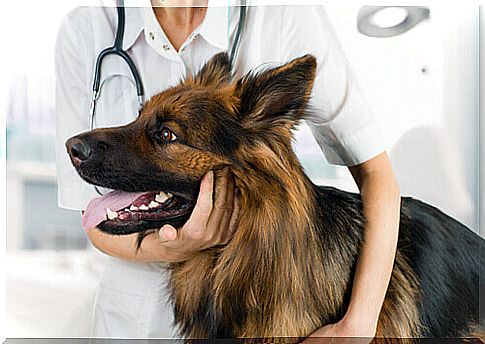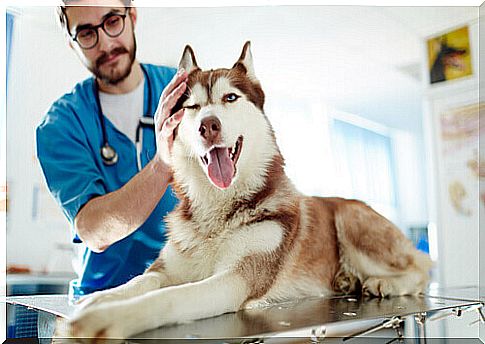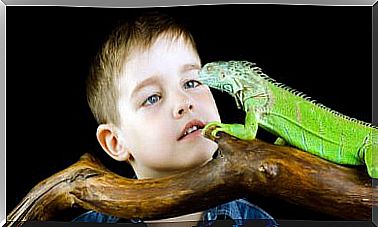Does Your Pet Need A Psychiatrist?

When perceiving strange attitudes or inappropriate behavior, many owners believe that their pet needs a psychiatrist. Today, there is a branch of veterinary medicine specializing in the behavior and mental health of pets: veterinary ethology.
Next, we will know a little more about the work of a veterinary ethologist and we will help you identify if your pet needs a psychiatrist.
Are there psychiatrists or psychologists for animals?
Yes! The segment within veterinary medicine that is dedicated to the mental health of animals is ethology or veterinary psychiatry. However, it is preferred to use the term ethology, which is associated with behavior, and not psychiatry, which derives from the psyche or mind.
Professionals who decide to specialize in this area may be called ethologists, zoopsychiatrists, or animal psychologists. Although there is currently more talk about canine and feline ethologists, there are also zoopsychiatrists who are dedicated to the care of exotic pets and wild animals.
It should be noted that only veterinarians can formally practice animal ethology or psychology. That is, before specializing as an ethologist or zoopsychiatrist, the professional must have completed a degree in veterinary medicine.
What is and what is veterinary ethology or psychiatry used for?
To know if your pet needs a psychiatrist, it is first essential to know what these professionals do. A first step would be to analyze what animal ethology is and what problems it can help cure or control.

Veterinary ethology or zoopsychiatry consists of a branch of behavioral biology, which is dedicated to studying the behavior of animals. We are not talking only about instinctive behaviors, but also about habits during domestication or living with people and other species.
Each behavior carried out by an animal is related to various genetic, environmental, educational and health factors. For this reason, veterinary ethologists or psychiatrists do not study only factors internal to the animal.
To reach a diagnosis and establish a treatment, an ethologist must consider possible diseases, but he also needs to contemplate the reality of the patient, the environment where he lives and the education he receives. Therefore, it is a very complex specialization that requires dedication and specific knowledge.
What problems is animal psychiatry about?
In principle, animal psychiatry or zoopsychiatry analyzes and tries to treat all behavioral problems. In addition to observing instinctual behaviors carried out in the wild, he is also dedicated to analyzing the causes and treating possible behavioral disturbances arising in captivity.
When we talk about pets, the most frequent cases in clinical ethology are those behaviors that generate disorders in coexistence with their guardians and relatives. In the vast majority of cases, these are instinctive behaviors; they appear or are reinforced by bad education and poor socialization.

The following behavioral problems that concern owners can be treated or alleviated with the help of an animal psychiatrist:
- Fears and phobias.
- Aggressive / self-defensive behaviors in relation to known or strange people and animals.
- Destructiveness and separation anxiety.
- Possessive behaviors in relation to their objects, their relatives or their environment.
- Anxiety and hyperactivity.
- Socialization and coexistence problems, either with people or with other animals.
- Exaggerated reactions to unknown stimuli.
- Stereotypies (obsessive behaviors) and Obsessive Compulsive Disorder in animals.
- Insecurity, self-confidence problems and fear of social interaction.
How do you know if your pet needs a psychiatrist?
To know if your pet needs a psychiatrist, it is essential to be attentive to his behavior on a day-to-day basis. In case the animal shows any symptoms of the behavior problems mentioned above, do not hesitate to go to an ethologist or animal psychiatrist.
On the other hand, if it seems to you that the character of your pet has changed in some way, it is recommended to make a preventive consultation with an ethologist veterinarian. In this way, it is possible to detect early and prevent the advance of possible diseases or behavior problems.
On the internet it is possible to find professionals specialized in zoopsychiatry or veterinary ethology. However, we advise you to speak with your trusted veterinarian and ask for a recommendation. In addition to getting to know your pet, your vet will be able to recommend a trained professional they trust.
Last but not least, we want to remember the importance of preventing behavior problems in our pets. With proper education and adequate preventive medicine, we can avoid the vast majority of behavioral disorders and preserve the good health of our faithful companions.








